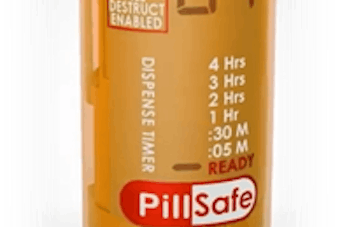This content was written and submitted by the supplier. It has only been modified to comply with this publication’s space and style.
ISSUE: FDA is adding information on severe liver injury to the Boxed Warning of Arava (leflunomide) a drug used to treat rheumatoid arthritis - to highlight the risk of severe liver injury in patients using this drug and how this risk may be reduced. FDA previously required a Boxed Warning stating that leflunomide was contraindicated in pregnant women, or women of childbearing potential who were not using reliable contraception.
BACKGROUND: The decision to add information on severe liver injury to the Boxed Warning was based on FDA's review of adverse event reports which identified 49 cases of severe liver injury, including 14 cases of fatal liver failure, between August 2002 and May 2009. In this review, the greatest risk for liver injury was seen in patients taking other drugs known to cause liver injury, and patients with pre-existing liver disease.
RECOMMENDATIONS: The information on severe liver injury being added to the Boxed Warning states:
* Patients with pre-existing liver disease should not receive leflunomide.
* Patients with elevated liver enzymes (ALT greater than two times the upper limit of normal) should not receive leflunomide.
* Caution should be used in patients who are taking other drugs that can cause liver injury.
* Liver enzymes should be monitored at least monthly for three months after starting leflunomide and at least quarterly thereafter.
* If the ALT rises to greater than two times the upper limit of normal while the patient is on leflunomide - leflunomide should be stopped, cholestryamine washout begun to speed the removal of leflunomide from the body and follow-up liver function tests conducted at least weekly until the ALT value is within normal range.
BACKGROUND: The decision to add information on severe liver injury to the Boxed Warning was based on FDA's review of adverse event reports which identified 49 cases of severe liver injury, including 14 cases of fatal liver failure, between August 2002 and May 2009. In this review, the greatest risk for liver injury was seen in patients taking other drugs known to cause liver injury, and patients with pre-existing liver disease.
RECOMMENDATIONS: The information on severe liver injury being added to the Boxed Warning states:
* Patients with pre-existing liver disease should not receive leflunomide.
* Patients with elevated liver enzymes (ALT greater than two times the upper limit of normal) should not receive leflunomide.
* Caution should be used in patients who are taking other drugs that can cause liver injury.
* Liver enzymes should be monitored at least monthly for three months after starting leflunomide and at least quarterly thereafter.
* If the ALT rises to greater than two times the upper limit of normal while the patient is on leflunomide - leflunomide should be stopped, cholestryamine washout begun to speed the removal of leflunomide from the body and follow-up liver function tests conducted at least weekly until the ALT value is within normal range.
Companies in this press-release





















